Let’s clean the sea off the coast of Sesimbra
To EDP, sustainability isn’t a trend, it’s how we always work. And to create a sustainable planet for this generation and the next ones, we have to protect the oceans. So we joined Oceanum Liberandum, an organisation involved in the protection of the sea, for an unprecedented campaign of underwater cleanup, close to the beach of Sesimbra: “In Defence of the Oceans”.
The purpose is to alert for climate change and raise awareness to the importance of protecting marine biodiversity.
initiative
Diving for a cause
On september 24, Oceanum Liberandum wants to gather 700 divers at the beach in Sesimbra, for an unprecedented cleanup.This initiative aims to beat the Guinness world record of the largest number of divers in the same marine cleanup.
In Defence of the Oceans starts at 8h and any certified diver can join the initiative. You just need to register - online or in person, in one of the participating diving centers - and the cost is 15€.
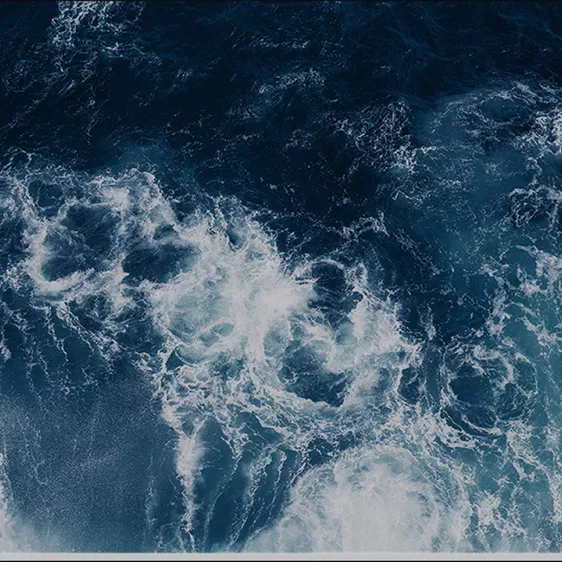
The initiative in numbers
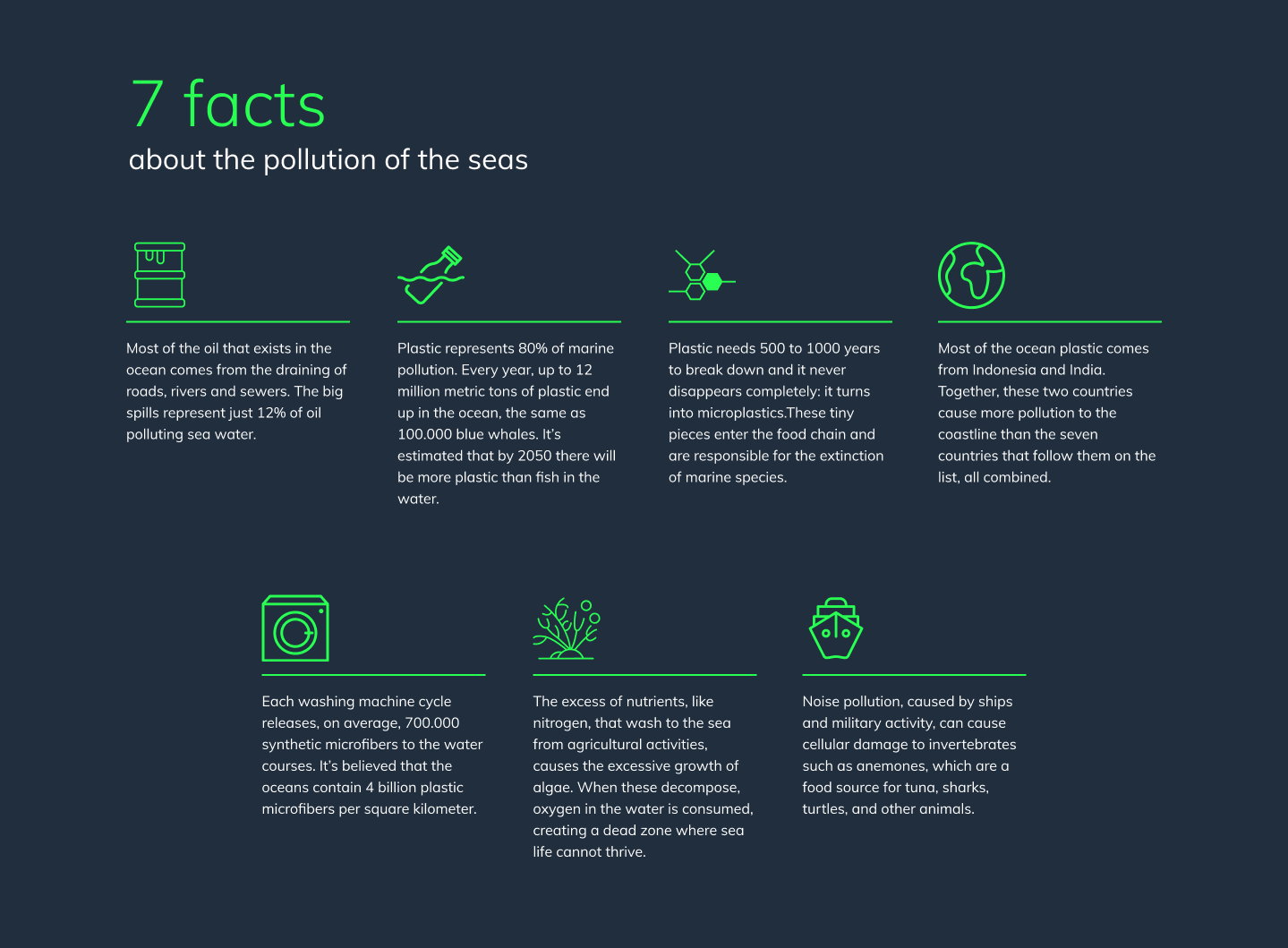

clean the ocean
Rúben Galante: one of the faces of EDP and Oceanum Liberandum
It was at sea that he found the inner peace he was looking for. He has dived with whale sharks, dolphins and turtles. He has had the opportunity to see some of the most beautiful reefs in the world up close. But he has also seen destroyed ecosystems, lifeless marine areas and colorless reefs. It was because of this that, together with Débora Laborde, Rúben decided to create Oceanum Liberandum. At EDP, he saw a brand that is increasingly concerned with climate change and the future and that's where he found support for the creation of the association and this underwater cleaning campaign: "we had extraordinary support from the team I work with and from my direct manager. It was very important to look around and not just be two people with unreachable ideas, we had family and friends fighting with us."
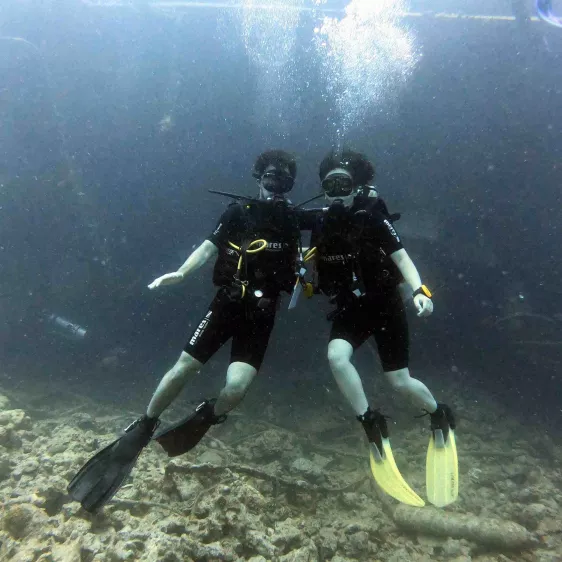
plastic on ocean
Plastics: the main threat to the sea
It was about 50 years ago that the world started to realise it’s necessary to control the amount of waste that arrives at sea. Up to then - and because the oceans are so vast - the impact of garbage and chemicals in the water was tought to be insignificant. Today we know that this is not so. Pollution is one of the main causes for the lack of sustainability in the marine ecosystems and the extinction of aquatic species. And the biggest impact comes from plastic pollution: this kind of waste constitutes about 80% of marine pollution. The Portuguese coast presents the same scenario: in 2021, 90% of all the garbage found on beaches was plastic.
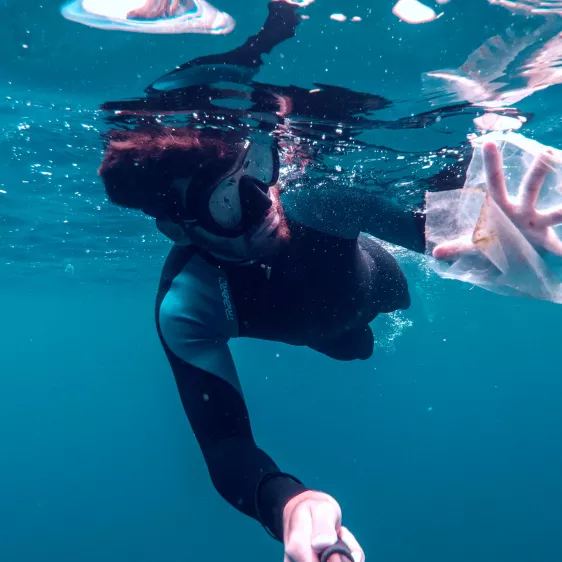
Microplastics: what they are and how they affect marine life
Plastic is one of the main threats to marine ecosystems. It’s estimated that plastic needs 500 to 1000 years to break down, and still, it never decomposes completely: it turns into microplastic. Microplastics are particles smaller than 5mm that can be ingested by animals, endangering marine species, and eventually causing health problems in humans.
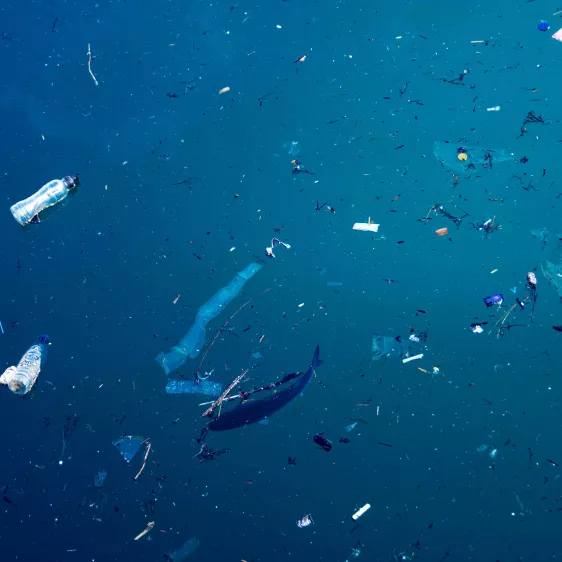
To protect the oceans is in our DNA
EDP's connection to water goes back several decades, since we started hydroelectric generation in Portugal, Spain and Brazil. Only one course of action would make sense for us: to include the oceans in the center of our vision and strategy. So, all the actions we develop take into account the preservation of the oceans: we invest in offshore wind energy and offshore floating solar energy, we are one of the 17 founding members of the Global Alliance for Sustainable Energy, and we subscribed the commitments signed in the Global Compact and the UN Sustainable Development Goals.